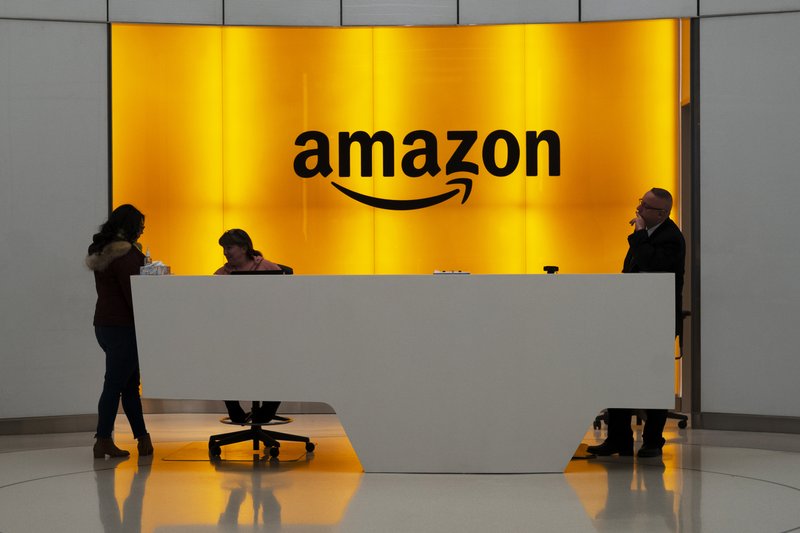WASHINGTON -- The United States for the first time added five of Amazon's overseas operations to its list of "notorious markets" where pirated goods are sold. The e-commerce giant dismissed the move as part of the Trump administration's "personal vendetta" against it.
The office of the U.S. trade representative on Wednesday added the Amazon.com Inc. domains in Canada, France, Germany, India and the United Kingdom to its annual blacklist.
The office cited complaints from U.S. businesses that consumers can't easily tell who is selling items on the Amazon platforms and that the e-commerce company's procedures for removing counterfeit goods "can be lengthy and burdensome."
Amazon fired back with a statement Wednesday: The Seattle company said it "strictly prohibits counterfeit products" and that 99% of pages viewed worldwide by customers on Amazon have never had a report of counterfeit.
"We strongly disagree with the characterization of Amazon in this ... report. This purely political act is another example of the administration using the U.S. government to advance a personal vendetta against Amazon." The company said that it has taken aggressive steps to combat counterfeiting and to vet sellers. The company said that last year that it weeded out 2.5 million potential bad actors before they could start selling.
President Donald Trump has clashed repeatedly with Amazon. The company's founder, Jeff Bezos, also owns The Washington Post, which has written critical stories about Trump and his business dealings.
Amazon sued the U.S. Defense Department last year after losing a lucrative cloud computing contract to rival Microsoft. Trump has also said he won't approve a $10 billion loan to the U.S. Postal Service unless it dramatically increases the rates it charges Amazon and other big shipping companies.
Last October, the American Apparel & Footwear Association urged the trade representative to add Amazon operations in those five countries to the notorious markets list. The association praised the trade office's decision in a statement Wednesday but did not mention Amazon.
It is essential that both domestic and worldwide marketplaces, and the countries that house them, implement effective and proactive measures to safeguard intellectual property to protect consumers, workers, and their families," the association's president and CEO, Steve Lamar, said in a statement Wednesday. "This is especially the case during the covid-19 crisis, when more Americans than ever have made online purchases, which can unknowingly expose them to counterfeits sold on unsafe marketplaces."
Chinese e-commerce company Alibaba Group's Taobao.com online marketplace also remained on the list.
The trade representative's office also said Wednesday that Algeria, Argentina, Chile, China, India, Indonesia, Russia, Saudi Arabia, Ukraine and Venezuela remained on its "priority watch list" of countries that do not adequately protect intellectual property. It removed Kuwait from the priority list, saying the country is updating its intellectual property laws and stepping up enforcement against piracy.
While trade representative's office said it was encouraged by changes China is making to its intellectual property-rights system -- including under the first phase of a trade deal the nations signed in January -- India remains one of the most challenging countries when it comes to intellectual property rights enforcement, the official said.
The Trump administration also continues to assess potential actions to enforce the so-called import de minimis value threshold of $800, which allows goods below that amount to enter the U.S. without duties. The administration and some U.S. stakeholders allege that e-commerce platforms are exploiting this threshold as a loophole to get around tariffs Trump has imposed.
Changing the threshold would require congressional action, the U.S. trade official said, and the administration is therefore discussing steps of what could be done to apply the level without having to change the law.
Information for this article was contributed by Paul Wiseman of The Associated Press and by Jenny Leonard of Bloomberg News.
Business on 04/30/2020

